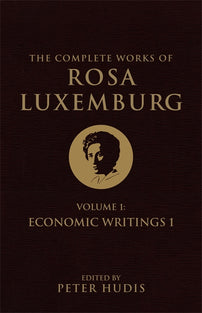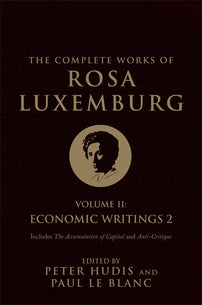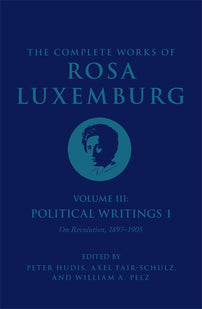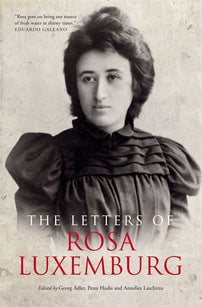When the Sailors Mutinied
In January 1919, the German Social Democratic Party turned guns on its own supporters, brutally putting down the Spartacist uprising. In this article historian and writer Klaus Gietinger argues that as right-wing mass movements rock countries across Europe and the good old SPD seems doomed to collapse, the party must finally confront its own history.

How Germany’s Social Democratic Party once turned its guns on its own supporters, and why the party must finally reckon with this fact today.
The end of the First World War unleashed a revolutionary wave that broke across all of Europe. It began in October 1917 with the Russian Revolution, and would inspire revolutionary movements as far flung as Spain one year later.
Radical changes took place in the countries that lost the war: the monarchy was toppled in Russia, Austria-Hungary, Germany, Bulgaria, and Turkey, while council movements rose up across Hungary, Austria and Italy. Mass strikes, social movements, and radicalizations also took place in the victor countries of France, Great Britain, and the US, which were only held in check by social concessions like trade union recognition and the eight-hour day. Radical mass risings even took place in neutral Spain in the form of the anarcho-syndicalist movement. Nor should we forget the Swiss general strike in November 1918, which was provoked by the military and long regarded as a defeat for Social Democracy’s left wing. Yet the brightest hopes for revolution lay in Germany. The only problem here was that the leaders of the Social Democratic Party (SPD) did not want a revolution, nor even a republic.
The Fear of the Masses
On 31 October 1918, SPD chairman Friedrich Ebert told high-level representatives of the German imperial government: ‘I dread the moment when the mass, the street, under the influence of the Independents, demands of us the implementation of our programme and a republic. Germany is not ready for a republic.’ The programme in question was the SPD’s 1891 Erfurt Programme, which called for direct and equal elections, women’s equality, the eight-hour day, and freedom of religion. Is this what Ebert dreaded? The most uncomfortable part of the programme for him were likely the demands for a democratic army and the socialization of the means of production.
The German Empire had lost the World War. Ebert’s party, in turn, supported this war for four years by approving the war credits and observing a political truce on the home front. Figures on the furthest right-wing fringes of the party like Gustav Noske even called for the annexation of countries such as Belgium. This history is embarrassing for German Social Democrats even today, who simply do not want to talk about it. Indeed, they will likely cover their ears whenever the topic comes up for as long as their party still exists—which may not be much longer.
The war not only cost millions of victims while physically and spiritually crippling millions more, but also split the SPD in two. Ebert and his friends expelled opponents of the war from the SPD parliamentary group and the party itself, many of whom subsequently founded their own Independent Social Democratic Party (USPD).
The Sin of Revolution
Ebert was afraid of the expelled Social Democrats. He and his comrades in the party leadership, mostly from petite bourgeois backgrounds, had acclimated themselves to the Wilhelmine state. They became labour bureaucrats, well-paid by their party and warmly embraced by the imperial government since 1914—after all, the war never would have been possible without the SPD. Ebert was worried for his career and was afraid of the Bolsheviks, of conditions like in Russia where Lenin and Trotsky used terror to turn the balance of forces upside-down. That said, Ebert was less afraid of the terror itself so much as the upheaval in social values it could cause.
‘I hate the social revolution like I hate sin’ he once said to the last imperial Kaiser, Max von Baden. In fact, relatively few members of the USPD were actually Bolshevik supporters. Even Rosa Luxemburg from the party’s left wing was a sharp critic of Bolshevik terror, although she viewed the party as the ally of the workers on the street. Ebert, on the other hand, hated nothing more than when his own voters took to the streets en masse. His ideal was the ‘military road of parliamentary discussion and decision-making’—not the base that populated the street, went on strike, demanded bread or an end to the war, and wanted to see the party programme implemented.
Thus, when the sailors in Wilhelmshaven and Kiel refused to die in one last pointless naval battle and mutinied, when the uprising spread across Germany via other sailors and the railways, and when the Revolutionary Stewards (a USPD-aligned group of illegal works councils) proclaimed the revolution in Berlin on 9 November 1918 and hundreds of thousands of armed workers took to the streets and stormed the army barracks without bloodshed, Ebert knew what to do. If the train could no longer be stopped, then the only option left was to drive the train himself.
And so he did. Max von Baden appointed Ebert Chancellor of the Reich as planned. But by this point no agreement could work without the USPD. Whether he liked it or not, Ebert was forced to accept a government of three SPD and three USPD People’s Deputies. Nor could he get around recognizing the authority of the Workers’ and Soldiers’ Councils that had spontaneously formed.
The Ebert-Groener Pact
Ebert and his accomplices managed to achieve an SPD majority in the councils. Imperial officers, double agents, and spies were also smuggled into the committees. Ebert’s goal was to do everything he could to prevent the street from taking power. He blocked any attempt to move forward on important points from the party programme, like a democratic army and the socialization of industry. For this reason he entered into an alliance with the German Army, which still had its troops stationed deep in French territory. Commander of the army General Wilhelm Groener promised Ebert to send the troops home after the armistice on 11 November and take care of the ‘blight of the councils’ if he would ally with him. Ebert agreed.
To this day, SPD-friendly historians deny the pact against the councils, which are unjustly derided as Bolshevik, while conservative historians regularly highlight it and cast it in a positive light. In secret collusion with Ebert, the army sought to disarm the councils and erect a military dictatorship through various putsches and by returning soldiers from the front. This attempt would ultimately fail in December when the military fired on demonstrators. Ebert sought to appeal to the returning troops, telling them that ‘no enemy has defeated you’.
Ebert ordered an attack on the People’s Navy Division on Christmas 1918. This revolutionary brigade had come to Berlin from the coastal cities and loyally guarded the government and the Reichsbank; yet it posed an obstacle on the road to military restauration. Its leaders had passed a resolution favouring the democratization of the army at the Reich Councils Congress in mid-December, which army command now sought to prevent at all costs as it would have meant the end of militarism. Yet ‘killing’ the sailors posted in the Berlin City Palace as ordered by army chief Groener proved impossible even with artillery and gas grenades, for the Berlin workers surrounded the palace and disarmed the attackers. The USPD members subsequently left the government in protest—a grave mistake.
The Bloodhound of the Revolution
Now composed purely of SPD members, the government dismissed the USPD police president in January 1919. Mass protests erupted as hundreds of thousands went into the streets; newspaper offices, including the Social Democratic Vorwärts, were occupied by angry workers. Karl Liebknecht and the later president of East Germany Wilhelm Pieck proclaimed the Ebert government deposed—against the objections of the leaders of the Revolutionary Stewards. A struggle for power then broke out, dubbed the so-called ‘Spartacus Uprising’. This title is misleading, however, for it was largely USPD members and not the Spartacists of the Communist Party who fought to push the revolution forward.
Ebert called the hardliner Gustav Noske back to Berlin along with the Freikorps–extremely violent volunteer brigades commanded by officers who fired wildly without any legal authority. Noske took up his post with the words: ‘somebody has to be the bloodhound’.
The occupied newspaper offices were now freed with artillery and flamethrowers, while parliamentarians were lined up against the wall and massacred without trial. Captain Waldemar Pabst, the leader of the largest Freikorps unit, sent his officers to murder Rosa Luxemburg and Karl Liebknecht. Luxemburg’s corpse would later end up in Berlin’s Landwehr Canal.
Pabst was never prosecuted for his crimes. In the 1940s he worked as an arms dealer in Switzerland and provided Nazi Germany with the machinery it needed to conduct its killing. Talking in private to his officer friends back in West Germany in 1969, Pabst claimed that Noske had approved the murder orders. Should he ever lose his cool, he said, he would consider going public—but that would hurt the SPD. In that same year, the party saw its first federal chancellor elected: Willy Brandt.
Not Too Late
The SPD’s historical commission continues to ignore Noske’s approval to this day, insisting that Pabst was a liar. Conservative historians who knew Pabst, on the other hand, regard him to be absolutely trustworthy. Moreover, when a second general strike broke out and agent provocateurs sparked a second uprising in March 1919, Pabst presented Noske with an order: ‘Every person who is seen fighting government troops with a weapon in hand is to be executed immediately.’ Noske signed the order. This illegal command led to the deaths of 1,200 people in Berlin and 4–5,000 across Germany in a matter of days. Counter-revolution and fascist movements would soon set in across Europe: first in Hungary and Italy, and later in Spain and Germany.
Saying that the SPD leadership largely decimated its own voters, the workers, with the bloody terror of the Freikorps in 1919 was and remains taboo—particularly among the contemporary SPD. Yet today the party promises that it wants to renew itself. This presents it with a unique chance to take responsibility for Noske and Pabst’s criminal deeds and in doing so initiate a new beginning for the party. Today, as right-wing mass movements rock countries across Europe and the good old SPD seems doomed to collapse, it must finally confront its own history.
Moreover, it must become a party of the ‘little people’ again: enough of the Agenda 2010 reforms, the decline of solidarity, and policies targeting the lower classes. Back then, such policies were implemented with guns, now they occur through social declassing, temporary work, marginal employment, and Hartz IV. The SPD should have gone into the opposition a year ago, it should have gone back to its roots as a party of the workers, craftspeople, employees and lower class. It is not yet too late.
Klaus Gietinger is an author, script writer, director, and scholar. His book, The Murder of Rosa Luxemburg, is out now and 40% off this week to mark the 100th anniversary of her murder (ends January 20). This article originally appeared in WOZ: Die Wochenzeitung.
[book-strip index="1" style="display"]




